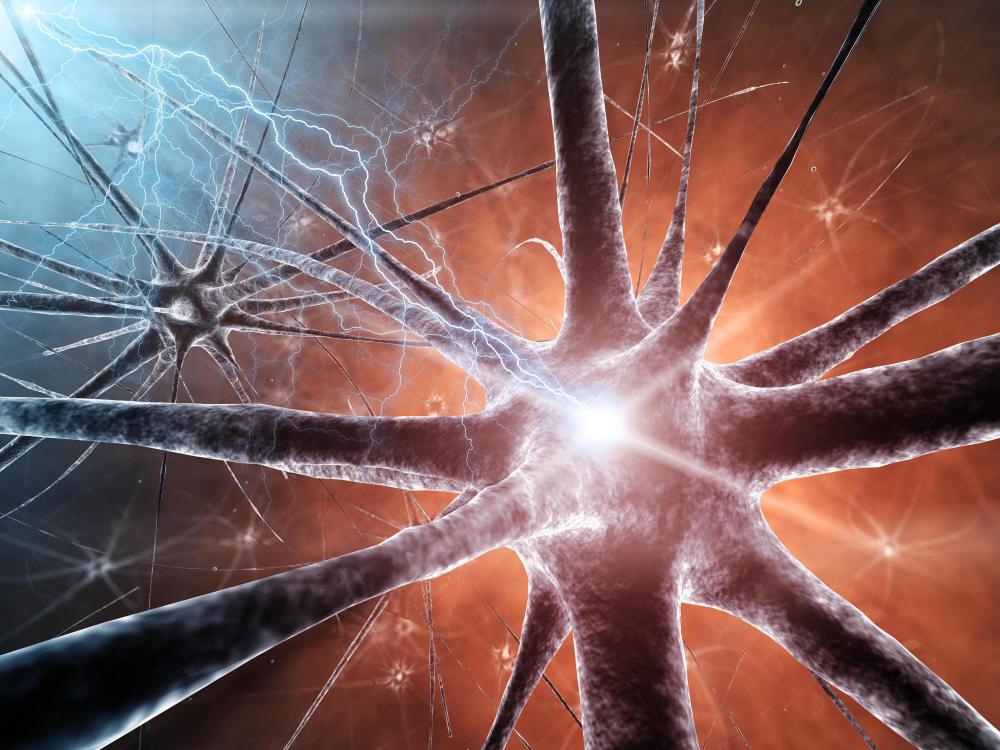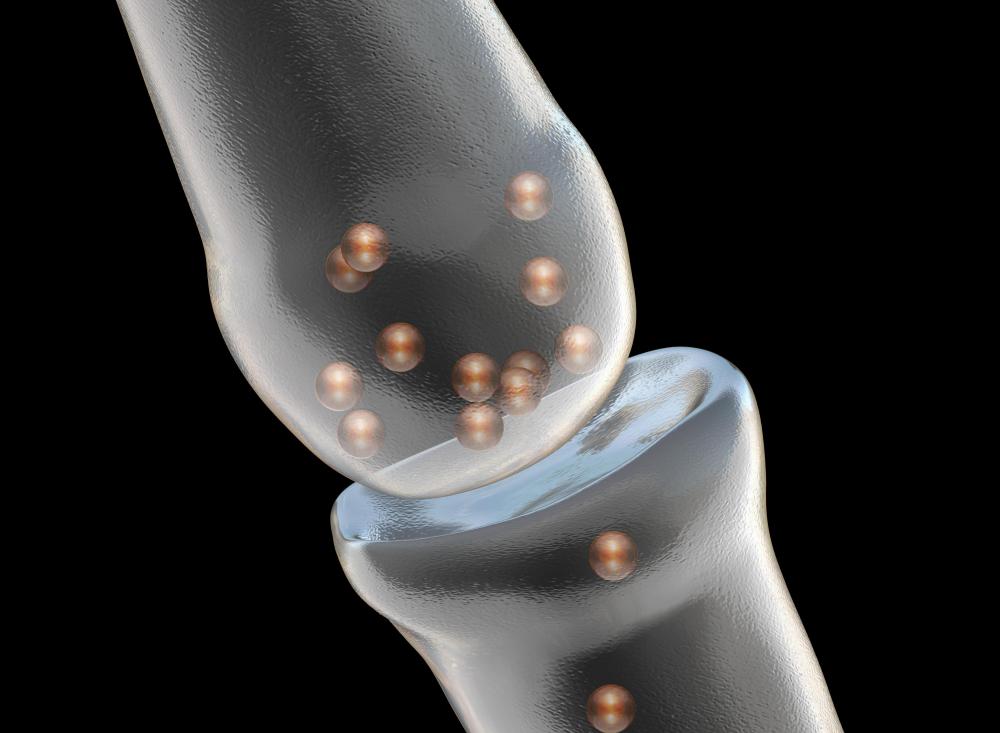At TheHealthBoard, we're committed to delivering accurate, trustworthy information. Our expert-authored content is rigorously fact-checked and sourced from credible authorities. Discover how we uphold the highest standards in providing you with reliable knowledge.
What are Neurotransmitters?
Neurotransmitters are chemicals which transport information across the synaptic cleft between neurons. These chemicals are manufactured by the body, and they are utilized to send a wide variety of messages, from a signal to relax a muscle to a chemical reward for engaging in a particular task. Many have been identified by researchers who work with the brain and nervous system and many more have yet to be firmly identified and understood. They are very difficult to see in action in the wild, which has complicated study of these unique chemicals.
These chemicals are produced within the cell body of a neuron. They travel along the neuron's axon and take up residence in the vesicles, which are essentially small pods filled with neurotransmitters. When the neuron receives the correct impulse, a vesicle will burst open to release the corresponding neurotransmitter, and the chemical will travel across the synapse to receptors located on the dendrites of a neighboring neuron or neurons.

Some neurotransmitters have an excitatory action, which means that they activate the neurons they come into contact with. Others are inhibitory, shutting down the neuron. When a neuron receives a message from a neurotransmitter, it can in turn pass the message on to neighboring neurons. All of these actions take place in fractions of a second, allowing the brain to send and receive messages almost instantly to and from anywhere in the body. The nervous system is extremely complex and sophisticated, which is one reason why it has been challenging for researchers to fully understand it.

There are three main types of neurotransmitters: monoamines, amino acids, and peptides. Some examples include dopamine, serotonin, GABA, acetylcholine, oxytocin, insulin, and adrenaline. Each chemical serves a specific function in the body and the nervous system. Many mind altering drugs are capable of mimicking or suppressing the actions of various neurotransmitters to create a variety of effects, and some drugs can cause permanent structural changes if they are used over prolonged periods of time. Prescription medications are often designed to work with or against specific neurotransmitters.

Certain neurotransmitters have developed systems within the brain and nervous system which allow for large scale volume transmission of the chemicals. Dopamine is one that's associated with volume transmission. It plays a role in the body's reward system, and is heavily involved in the process of addiction. Similar systems are involved in the process of learning, controlling emotions, and a variety of other tasks.
AS FEATURED ON:
AS FEATURED ON:














Discussion Comments
This article about neurotransmitters proves the point I made in my comments re. another Wise Geek article on excitotoxins: namely, that chemical damage to the system is every bit as important and relevant as any other listed damage there such as traumatic brain injury.
It does not make any difference whether those chemicals are technically "legal",(e.g., prescriptions or excitotoxins added to processed foods for their addictive effects and money-making benefits to their corporate exploiters), or those which have been declared illegal, (e.g., street drugs).
Post your comments